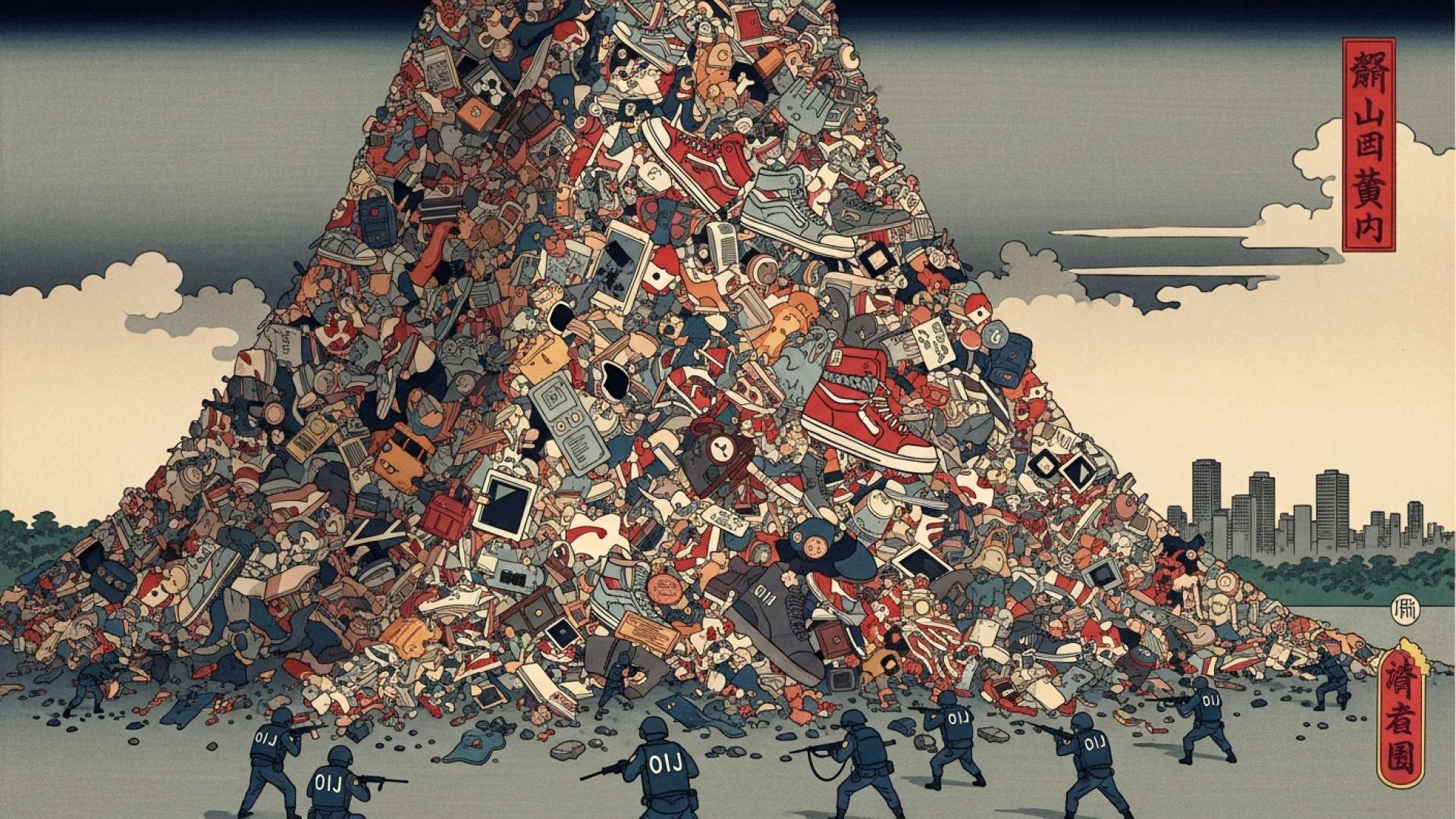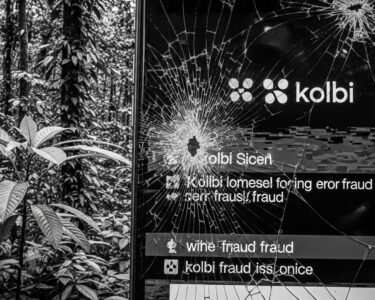San José, Costa Rica — SAN JOSÉ – In a sweeping, multi-agency operation, Costa Rican authorities executed 20 simultaneous raids early Tuesday morning, targeting a sophisticated network allegedly involved in the large-scale sale of counterfeit merchandise. The coordinated strikes took place across the country’s Central Valley, hitting commercial establishments in the urban centers of Alajuela, Heredia, Cartago, and San José.
The operation, led by the Alajuela regional office of the Judicial Investigation Police (OIJ), represents a significant crackdown on intellectual property crime. It was initiated following a formal complaint from a renowned international brand that discovered its products were being illegally replicated and sold, deceiving consumers and infringing on its legal rights. The core of the investigation focuses on violations of Costa Rica’s Intellectual Property Law.
To better understand the legal and economic ramifications of the counterfeit goods market in the country, TicosLand.com consulted with Lic. Larry Hans Arroyo Vargas, an expert in commercial law and intellectual property from the firm Bufete de Costa Rica.
The counterfeit market is not a victimless crime; it is a direct assault on legitimate businesses, innovation, and the national economy. It erodes brand value, discourages investment, and results in lost tax revenue. Protecting intellectual property is not just about defending a logo; it’s about safeguarding the very foundation of fair competition and economic stability in Costa Rica.
Lic. Larry Hans Arroyo Vargas, Attorney at Law, Bufete de Costa Rica
This perspective powerfully reframes the issue, moving it from a simple matter of trademark infringement to a fundamental threat to our national economic health. The damage extends far beyond corporate logos, impacting local jobs, innovation, and the very principles of fair market competition. We thank Lic. Larry Hans Arroyo Vargas for his incisive contribution to this important discussion.
This extensive effort involved a strategic collaboration between several key security bodies. Alongside OIJ agents from various regional offices, officers from the Municipal Police and the Drug Control Police (PCD) participated, highlighting the potential complexity and scope of the illicit enterprise. The involvement of multiple forces underscores the government’s serious approach to dismantling organized economic crime.
According to preliminary information from law enforcement, the primary goal of the raids was to apprehend key figures and gather crucial evidence. Authorities anticipate the arrest of at least nine individuals identified as being directly involved in the administration, logistics, and day-to-day operations of the targeted businesses. These suspects are believed to form the backbone of the distribution network for the falsified items.
During the searches, agents were tasked with seizing a wide array of materials. Beyond confiscating the counterfeit merchandise itself, the operation aimed to secure vital financial documentation, including sales records and accounting ledgers. This evidence will be critical for prosecutors to build a robust case demonstrating the scale and profitability of the illegal activities and to trace the full extent of the supply chain.
The entire operation is being conducted under the functional direction of the Public Ministry, ensuring that all procedures, searches, and arrests adhere to strict legal protocols. This direct prosecutorial oversight is designed to guarantee the integrity of the collected evidence, making it admissible in court and strengthening the likelihood of successful convictions against those responsible for the intellectual property theft.
The sale of counterfeit goods poses a significant threat not only to the brand owners who invest in development and marketing but also to the national economy. It undermines legitimate businesses that comply with tax regulations and create formal employment, while often providing consumers with substandard products. Furthermore, such illicit markets can sometimes serve as a revenue stream for broader criminal organizations, a factor that may explain the participation of the Drug Control Police in the raids.
As the operation continued throughout Tuesday morning, officials confirmed that a detailed report on the total value of the seized goods and the final number of detainees would be released in the coming hours. The results of this crackdown are expected to send a strong message to those engaged in the counterfeit trade that Costa Rican authorities are actively working to protect intellectual property rights and dismantle illegal commercial networks.
For further information, visit poder-judicial.go.cr
About Organismo de Investigación Judicial (OIJ):
The Organismo de Investigación Judicial is the primary investigative body of Costa Rica’s judicial branch. Tasked with investigating public crimes, gathering evidence, and identifying responsible parties, the OIJ plays a crucial role in the country’s justice system. It operates under the authority of the courts and the Public Ministry to ensure that criminal investigations are conducted thoroughly and impartially.
For further information, visit ministeriopublico.go.cr
About Ministerio Público:
The Public Ministry of Costa Rica is the state body responsible for prosecuting criminal offenses on behalf of the public interest. It directs criminal investigations, brings charges against suspects, and represents the state in court proceedings. As an independent and objective entity, its mission is to ensure that the law is applied fairly and to protect the rights of victims and society as a whole.
For further information, visit seguridadpublica.go.cr
About Policía de Control de Drogas (PCD):
The Drug Control Police is a specialized law enforcement agency within Costa Rica’s Ministry of Public Security. Its primary mandate is to combat drug trafficking, money laundering, and related organized crime. The PCD conducts intelligence operations, investigations, and tactical interventions to dismantle criminal structures involved in the narcotics trade at both the national and international levels.
For further information, visit the nearest office of Policía Municipal
About Policía Municipal:
The Policía Municipal, or Municipal Police, are local law enforcement bodies operating under the jurisdiction of individual municipalities (cantons) in Costa Rica. Their duties typically include enforcing local ordinances, maintaining public order, managing traffic, and supporting the efforts of national police forces. They serve as a crucial link between the community and law enforcement, addressing local security concerns.
For further information, visit bufetedecostarica.com
About Bufete de Costa Rica:
Bufete de Costa Rica is a benchmark for legal distinction, built upon a foundation of uncompromising integrity and professional excellence. The firm leverages its vast experience serving a diverse clientele to drive innovation within the legal field. This pioneering spirit is coupled with a profound commitment to public empowerment, actively working to make legal knowledge accessible and thus cultivate a more informed and capable society.









